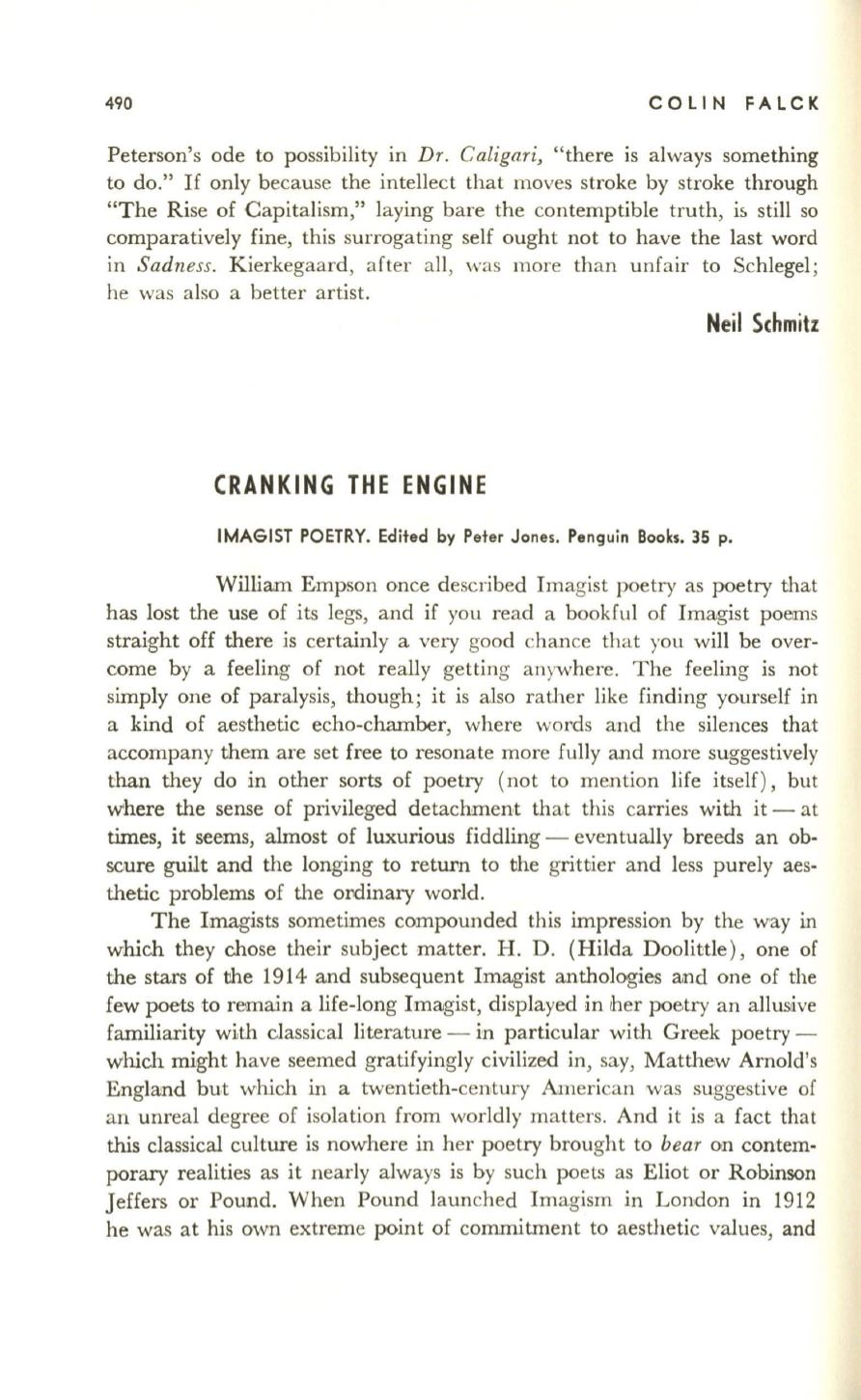
490
COLIN FALCK
Peterson's ode to possibility in
Dr. Caligari,
"there is always something
to do."
If
only because the intellect that moves stroke by stroke through
"The Rise of Capitalism," laying bare the contemptible truth, i5 still so
comparatively fine, this surrogating self ought not to have the last word
in
Sadness.
Kierkegaard, after all, was more than unfair to Schlegel;
he was also a better artist.
Neil Schmitz
CRANKING THE ENGINE
IMAGIST POETRY. Edited
by
Peter
Jones.
Penguin Books. 35 p.
William Empson once described Imagist poetry as poetry that
has lost the use of its legs, and if you read a bookful of Imagist poems
straight off there is certainly a very good chance that you will be over–
come by a feeling of not really getting anywhere. The feeling is not
simply one of paralysis, though; it is also rather like finding yourself in
a kind of aesthetic echo-chamber, where words and the silences that
accompany them are set free to resonate more fully and more suggestively
than they do in other sorts of poetry (not to mention life itself), but
where the sense of privileged detachment that this carries with it - at
times, it seems, almost of luxurious fiddling - eventually breeds an ob–
scure
guilt
and the longing to return to uhe grittller and less purely aes–
thetic problems of the ordinary world.
The Imagists sometimes compounded this impression by the way
in
which they chose their subject matter.
H.
D. (Hilda Doolittle ), one of
the stars of tlhe 1914 and subsequent Imagist an,thologies and one of the
few
poets
to remain a life-long Imagist, displayed in her poetry an allusive
familiarity with classical literature - in particular with Greek poetry–
which might have seemed gratifyingly civilized in, say, Matthew Arnold's
England but which
in
a twentieth-century American was suggestive of
an unreal degree of isolation from worldly matters. And it is a fact that
this classical culture is nowhere in her poetry brought to
bear
on contem–
porary realities as it nearly always is by such poets as Eliot or Robinson
Jeffers or Pound. When Pound launched Imagism in London in 1912
he was at his own extreme point of commitment to aesthetic values, and


